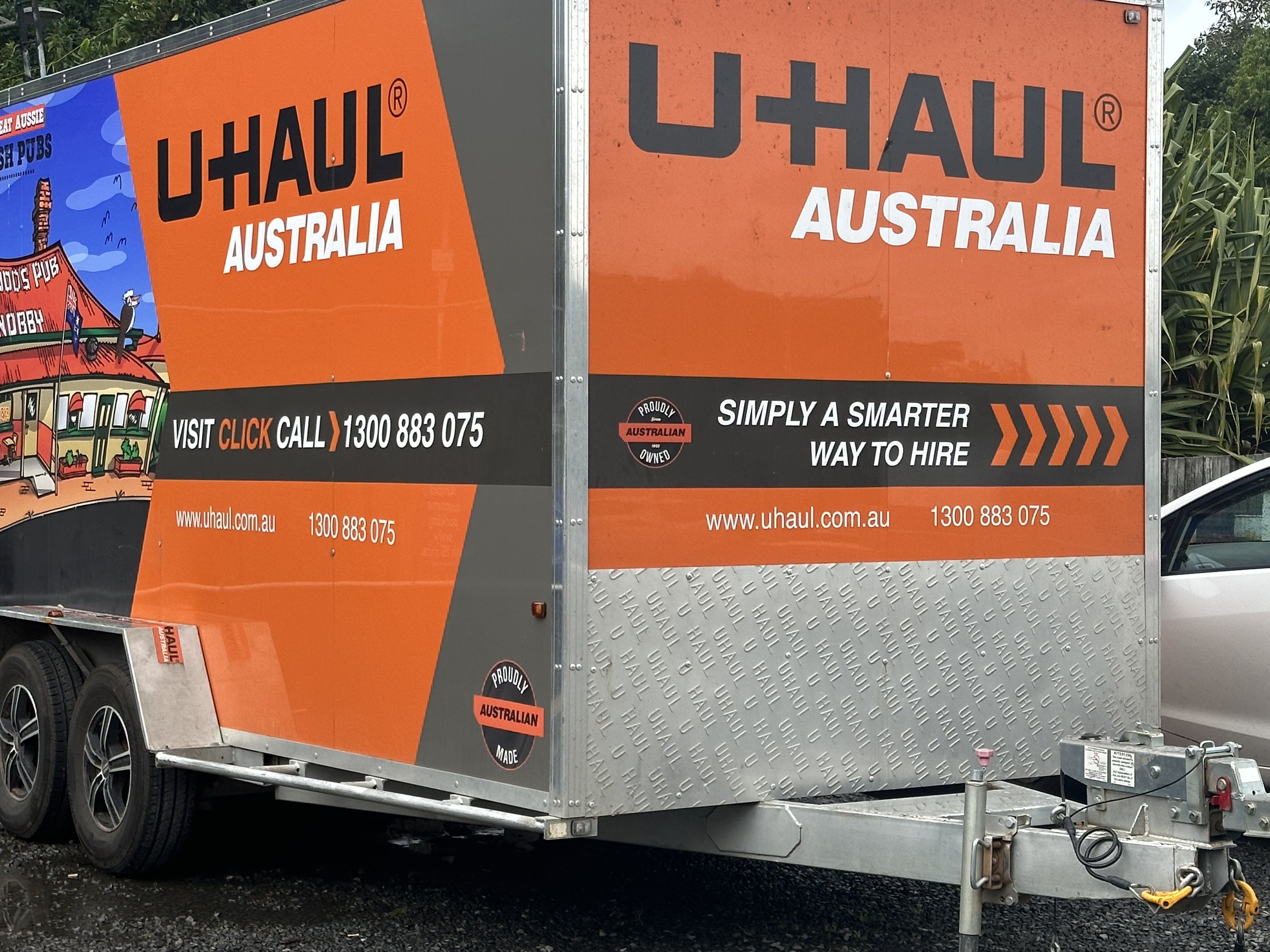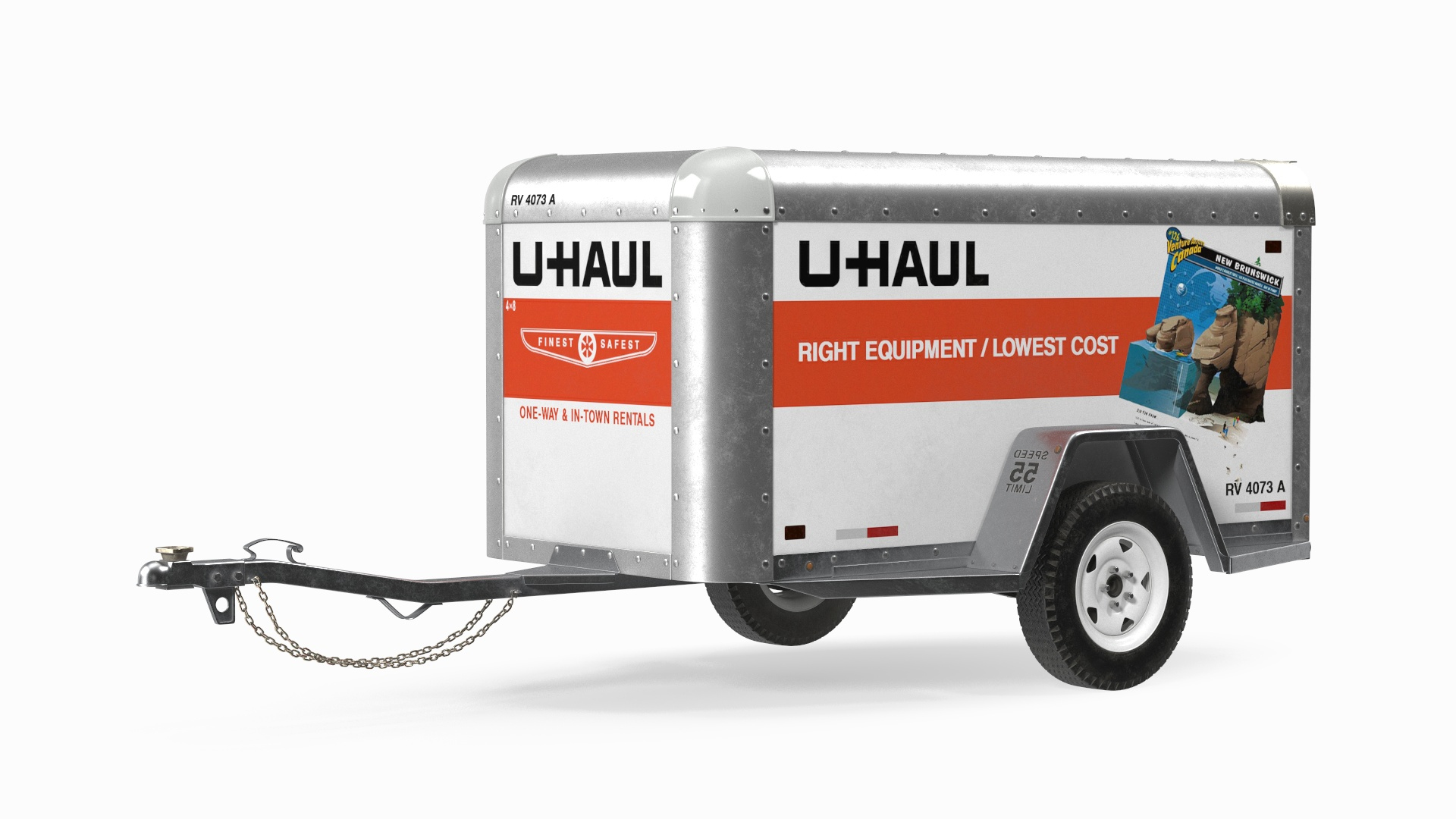Moving can be one of life's most stressful experiences. From packing countless boxes to coordinating logistics, the sheer volume of tasks can feel overwhelming. Among the most crucial decisions you'll make is how to transport your belongings. Enter the U-Haul trailer, a ubiquitous symbol of DIY moving and a versatile solution for relocating everything from a small apartment to a multi-bedroom home. This comprehensive guide will delve into the world of U-Haul trailers, providing you with the information you need to choose the right trailer, rent it safely, and navigate the often-complex process of moving your belongings. Whether you're a seasoned mover or tackling your first relocation, understanding U-Haul trailers is essential for a smoother, more affordable move.
Understanding U-Haul Trailers: A Versatile Moving Solution
The Comprehensive Guide to U-Haul Trailers: Your Moving Companion
A U-Haul trailer is a towable cargo carrier designed to transport personal belongings, furniture, and other items behind a vehicle. U-Haul, a leading name in the moving industry, offers a range of trailer sizes and configurations to suit various moving needs. Their trailers provide a cost-effective alternative to hiring professional movers or renting a large moving truck, especially for shorter distances or smaller loads. They are particularly useful when you already own a vehicle capable of towing and prefer to maintain control over the moving process.
The appeal of a U-Haul trailer lies in its flexibility and affordability. You can load and unload at your own pace, avoiding the rigid schedules of professional movers. They're also readily available at numerous U-Haul locations across the country, making them a convenient option for many.
Choosing the Right U-Haul Trailer for Your Needs: Size Matters
Selecting the appropriate trailer size is paramount to a successful move. Choosing too small a trailer will result in multiple trips or leaving items behind, while an unnecessarily large trailer can be difficult to maneuver and less fuel-efficient. U-Haul offers a range of trailer sizes, typically categorized by length and cubic footage:
-
4' x 8' Cargo Trailer: This is the smallest option, ideal for hauling small loads, such as a dorm room's worth of belongings, a motorcycle, or a few pieces of furniture.
-
5' x 8' Cargo Trailer: Slightly larger than the 4' x 8', this trailer provides a bit more space for small apartments or studio apartments.
-
5' x 9' Utility Trailer with Ramp: This open trailer is great for hauling landscaping supplies, small machinery, or items that don't require protection from the elements.

-
6' x 12' Cargo Trailer: A popular choice for moving the contents of a one- to two-bedroom apartment or a small house.
Auto Transport Trailer: Designed specifically for towing vehicles, this trailer features ramps and tie-down equipment to secure your car, truck, or SUV.

Factors to Consider When Choosing a Trailer Size:
- Inventory: Create a detailed inventory of all items you plan to move. Estimate the cubic footage required for each item or category of items.
- Number of Rooms: As a general guideline, use the number of rooms in your home as a starting point for selecting a trailer size.
- Furniture Size: Large furniture pieces, such as sofas, beds, and dining tables, will require more space than smaller items.
- Weight: Be mindful of the trailer's weight capacity and the towing capacity of your vehicle. Overloading a trailer can be dangerous and illegal.
- Distance: For longer distances, a larger trailer might be more efficient, reducing the number of trips required.
Renting a U-Haul Trailer: A Step-by-Step Guide
Renting a U-Haul trailer is a relatively straightforward process, but it's important to follow these steps to ensure a smooth experience:
-
Determine Your Needs: Decide on the appropriate trailer size and rental dates. Consider any additional equipment you might need, such as furniture pads, tie-down straps, or a trailer hitch.
-
Check Towing Capacity: Verify that your vehicle has the necessary towing capacity to safely pull the chosen trailer. This information can be found in your vehicle's owner's manual or by contacting the manufacturer.
-
Reserve Your Trailer: You can reserve a trailer online at U-Haul's website, by phone, or in person at a U-Haul location. Reserving in advance is highly recommended, especially during peak moving seasons (summer and end of the month).
-
Provide Required Information: You will need to provide your driver's license, vehicle registration, and proof of insurance.
-
Inspect the Trailer: Before accepting the trailer, carefully inspect it for any existing damage. Document any scratches, dents, or other issues on the rental agreement to avoid being charged for them later.
-
Understand the Rental Agreement: Read the rental agreement thoroughly before signing it. Pay attention to the rental period, mileage allowance (if applicable), insurance coverage, and return instructions.
-
Pick Up the Trailer: Bring your driver's license, vehicle registration, and rental agreement to the U-Haul location to pick up the trailer.
-
Connect the Trailer: Ensure the trailer is properly connected to your vehicle's hitch. Double-check the lights, brakes, and safety chains. If you are unsure about any aspect of the connection, ask a U-Haul employee for assistance.
Safety First: Towing and Loading Tips
Towing a trailer requires caution and awareness. Here are some essential safety tips:
- Drive Slower: Reduce your speed when towing a trailer. U-Haul recommends a maximum speed of 55 mph.
- Increase Following Distance: Allow for a greater following distance between your vehicle and the vehicle in front of you.
- Brake Earlier: Anticipate stops and brake earlier than you normally would.
- Wider Turns: Make wider turns to avoid hitting curbs or other obstacles.
- Check Mirrors Frequently: Regularly check your mirrors to monitor the trailer's position and ensure it's tracking properly.
- Secure Your Load: Properly secure your belongings inside the trailer using tie-down straps, rope, or other securing devices. Distribute the weight evenly to prevent the trailer from swaying or becoming unstable.
- Heavy Items First: Load heavier items towards the front of the trailer, near the axle, to improve stability.
- Protect Fragile Items: Wrap fragile items carefully with packing material to prevent damage during transit.
Potential Challenges and Solutions
While U-Haul trailers offer a convenient moving solution, there are potential challenges to be aware of:
- Availability: Trailers may be in high demand, especially during peak moving seasons. Reserving in advance is crucial.
- Towing Capacity: Ensure your vehicle has sufficient towing capacity. Overloading a trailer can be dangerous and illegal.
- Trailer Damage: Carefully inspect the trailer before accepting it and document any existing damage to avoid being charged for it later.
- Towing Skills: Towing a trailer can be challenging, especially for inexperienced drivers. Practice in a safe, open area before hitting the road.
- Parking: Finding parking for a vehicle with a trailer can be difficult, especially in urban areas.
Solutions:
- Reserve Early: Reserve your trailer well in advance to ensure availability.
- Verify Towing Capacity: Check your vehicle's owner's manual or contact the manufacturer to confirm towing capacity.
- Purchase Insurance: Consider purchasing U-Haul's SafeMove insurance for added protection against damage or theft.
- Practice Towing: Practice towing the trailer in a safe, open area to gain confidence and familiarity.
- Plan Your Route: Plan your route in advance, considering potential parking challenges and traffic congestion.
U-Haul Trailer Pricing
| Trailer Size | Estimated Daily Rate | Additional Mileage Fee (If Applicable) | Other Potential Fees | Notes |
|---|---|---|---|---|
| 4' x 8' Cargo Trailer | $14.95+ | Varies by Location | Insurance, Environmental Fees, Taxes | Ideal for small loads; Dorm rooms, Motorcycles |
| 5' x 8' Cargo Trailer | $19.95+ | Varies by Location | Insurance, Environmental Fees, Taxes | Slightly larger than the 4' x 8', this trailer provides a bit more space for small apartments or studio apartments. |
| 5' x 9' Utility Trailer with Ramp | $24.95+ | Varies by Location | Insurance, Environmental Fees, Taxes | This open trailer is great for hauling landscaping supplies, small machinery, or items that don't require protection from the elements. |
| 6' x 12' Cargo Trailer | $29.95+ | Varies by Location | Insurance, Environmental Fees, Taxes | A popular choice for moving the contents of a one- to two-bedroom apartment or a small house. |
| Auto Transport Trailer | $54.95+ | Varies by Location | Insurance, Environmental Fees, Taxes | Designed specifically for towing vehicles, this trailer features ramps and tie-down equipment to secure your car, truck, or SUV. |
Important Notes:
- Prices are estimates: Actual prices may vary based on location, time of year, and availability. It's always best to check U-Haul's website or call your local U-Haul dealer for the most up-to-date pricing.
- Mileage Fees: Some rentals may include a set amount of mileage, while others charge per mile. Be sure to clarify this before renting.
- Insurance: U-Haul offers various insurance options, such as SafeMove and SafeMove Plus, which can protect you against damage or loss.
- Other Fees: Be aware of potential environmental fees, taxes, and late return fees.
- One-Way vs. Round Trip: One-way rentals typically have different pricing structures than round-trip rentals.
Frequently Asked Questions (FAQ)
Q: What are the requirements to rent a U-Haul trailer?
A: You will need a valid driver's license, vehicle registration, and proof of insurance.
Q: How do I determine the towing capacity of my vehicle?
A: Consult your vehicle's owner's manual or contact the manufacturer.
Q: What happens if I damage the trailer?
A: You will be responsible for the cost of repairs, unless you purchased U-Haul's SafeMove insurance.
Q: Can I return the trailer to a different U-Haul location?
A: Yes, you can arrange for a one-way rental, but this may be subject to additional fees.
Q: How far in advance should I reserve a trailer?
A: Reserving as early as possible is recommended, especially during peak moving seasons.
Q: What is SafeMove insurance?
A: SafeMove insurance is an optional coverage that protects you against damage to the trailer, cargo damage, and medical expenses in the event of an accident.
Q: Can I tow a U-Haul trailer with any vehicle?
A: No, you must have a vehicle with sufficient towing capacity and a properly installed trailer hitch.
Conclusion: Your Move, Your Way, With U-Haul
U-Haul trailers offer a flexible and affordable solution for DIY moving. By understanding the different trailer sizes, rental procedures, safety precautions, and potential challenges, you can confidently navigate the moving process and transport your belongings safely and efficiently. Remember to plan ahead, choose the right trailer, prioritize safety, and understand your rental agreement. With careful planning and execution, your U-Haul trailer can be your reliable companion on the road to a new chapter in your life. Ultimately, choosing a U-Haul trailer empowers you to take control of your move, allowing you to do it your way, on your schedule, and within your budget.
0 comments